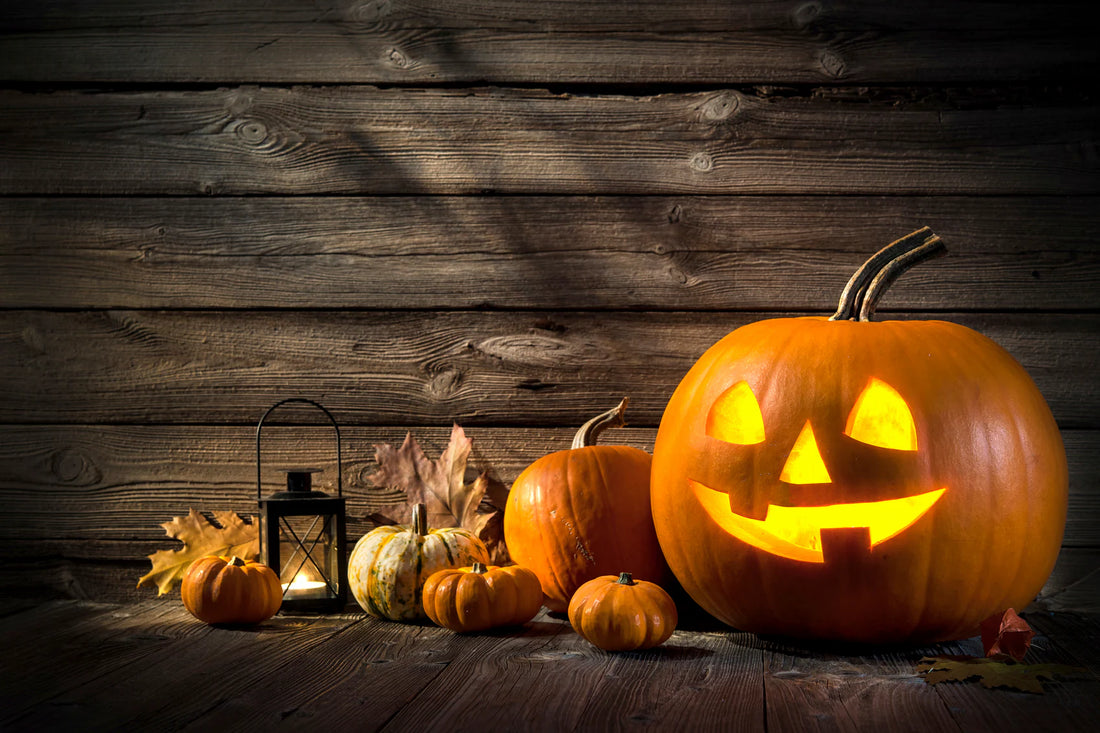
Origin of HALLOWEEN
Share
The Origin of Halloween: A Holiday with Deep Historical Roots
Halloween is one of the most iconic holidays in the Western world, characterized by scary disguises, sweets, and mysterious atmospheres. But what is the origin of Halloween? The history of this holiday has its roots in ancient traditions and celebrations linked to the cycle of the seasons, death, and religious beliefs.
Samhain and the Celtic Tradition:
The origins of Halloween date back to the Celts, an ancient people who inhabited Western Europe. The word "Halloween" originates from the Old English "All Hallows' Eve" meaning "All Saints' Eve," as the holiday takes place the night before the Christian feast of All Saints' Day. But the root of the celebration is deeper than it might seem.
The Celts celebrated Samhain (pronounced "Sow-in"), a holiday that marked the end of summer and the beginning of winter, a season associated with the death of nature. Samhain was a time of transition when the worlds of the living and the dead were believed to overlap. The festival was characterized by sacred bonfires, prayers and sacrifices to the gods to ensure a good harvest and protection from dark forces.
The Roman Conquest and Christianization
In the first century AD, the Romans invaded the Celtic lands, and their traditions merged with those of the Celts. The Samhain holiday became influenced by the Roman festival of Feralia, a day dedicated to commemorating the dead. In 609 AD, Pope Boniface IV consecrated the Pantheon in Rome as a church dedicated to all martyrs, transforming May 13 into the original All Saints' Day, honoring Christian saints.
However, the Catholic Church did not completely succeed in suppressing the ancient pagan traditions, and Samhain celebrations continued to have a place in the calendar, particularly in Celtic regions.
The Tradition of Carved Lanterns
A distinctive element of Halloween is the carved lantern, often called the "Jack-o'-Lantern." This tradition has Irish and Scottish roots. Legend has it that a man named Jack, known for his wiles, tricked the devil into taking away his soul. After death, Jack was denied entry to both Heaven and Hell and was forced to wander eternity with a lantern carved from a pumpkin.
Immigration to America and Halloween
With the immigration of the Irish and Scots to America in the 19th century, Halloween traditions spread and mixed with influences from other cultures, creating the holiday as we know it today. The commercialization of Halloween, with costumes, treats and decorations, is a relatively recent phenomenon, but it has helped make Halloween one of the most celebrated and beloved holidays in the Western calendar.
In summary, the origin of Halloween can be traced back to ancient Celtic celebrations of Samhain and Roman and Christian influences. Today, Halloween is a holiday that combines pagan, religious and folk traditions, offering an opportunity to celebrate life, honor the dead and have fun with scary costumes and treats.
